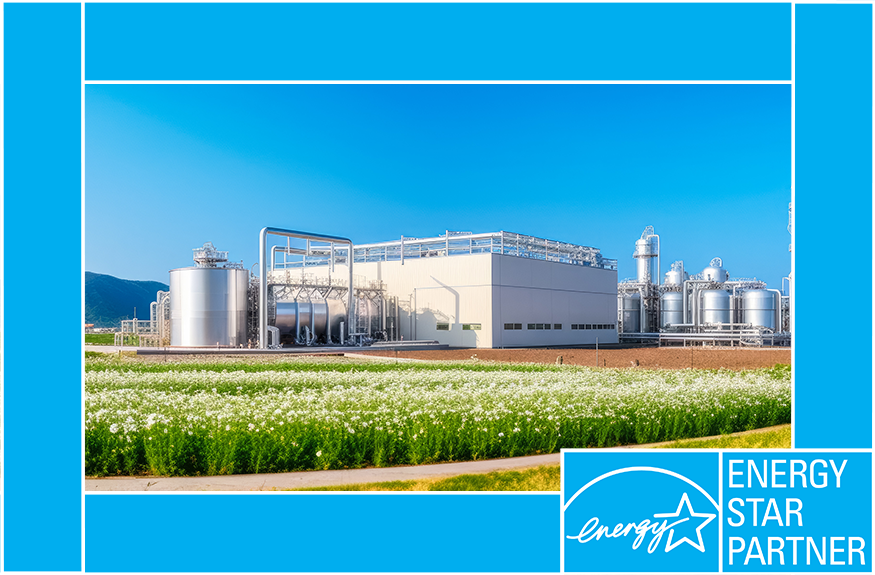Sustainability in Facility Management: Challenges and Solutions
Facility management is crucial in ensuring the effective and efficient operation of buildings and properties throughout the county. Environmental responsibility is seeing greater emphasis than ever before, and facilities are well positioned to address and surpass sustainable goals. Facilities greatly benefit from more efficient operations, and this article will detail why sustainability is important for facilities, a few challenges in implementing sustainable solutions, and how these challenges can be overcome.
Why Sustainability Matters
From an environmental standpoint, sustainable facility management is a crucial player in the battle against climate change. By optimizing energy consumption, reducing water usage, and implementing waste management strategies, we can significantly reduce our carbon footprints. This doesn’t just protect the environment; it also paves the way for a more resilient and sustainable future where resources are conserved for future generations.
The business case for sustainable and efficient technologies is strong, investing now will save money later. While integrating sustainable technologies and practices may demand a considerable initial investment, the long-term economic dividends can be substantial. Energy-efficient installations, for instance, can markedly decrease utility expenses, leading to significant cost savings in the long run. Properties that emphasize sustainable management often see their market value rise, providing an enhanced return on investment.
Challenges to Address
First and foremost, the initial capital required for sustainable upgrades can be significant, potentially causing hesitation among property managers or stakeholders. Additionally, the rapidly evolving landscape of sustainable technologies means that some of these technologies require specific partners to implement, such as a green roof or electric vehicle chargers.
Another roadblock comes in the form of resistance to change. Humans are creatures of habit, and new initiatives, especially those that may seem disruptive, can be met with skepticism by staff, tenants, or other stakeholders. Addressing these concerns is critical to bringing ownership, staff, and tenants on board with these efficient changes. Here’s a few ways you can overcome these challenges.
Education, Finances, and Communications
Education is paramount. Through consistent training and skill-building sessions, teams can be equipped with the knowledge and tools they need to effectively integrate sustainability into their operations. Resources like CRE Insight Journal offer a wealth of articles, educational events, and videos to help you identify emerging efficient technologies and navigate the ever-changing landscape of sustainability.
Financial challenges can be mitigated by investigating available local and federal grants, tax breaks, and other incentives such as utility rebates that are often extended to sustainable projects. Additionally, some service providers will take on the initial burden of some sustainable technologies (such as solar) by recouping their costs over time from the energy savings of that technology. Numerous areas also offer Commercial Property Assessed Clean Energy & Resiliency (C-PACER) loans to assist commercial properties with sustainability upgrades, however this creates a lien on the property until the loan is repaid, which may impact building sales.
To address resistance to change, open communication channels are essential. By involving stakeholders in decision-making processes and educating them on the long-term benefits of sustainability, it becomes easier to foster buy-in and collaboration. And when it comes to the maze of regulations, partnering with experts, such as environmental consultants or legal professionals, can provide invaluable guidance, ensuring that sustainability efforts are compliant with local standards.
Practical Tips for Sustainable Facility Management
Facility managers eager to adopt more sustainable practices can start with a comprehensive energy audit. This evaluation will highlight areas of improvement and potential energy-saving opportunities, and this can be accomplished for free using ENERGY STAR’s Portfolio Manager benchmarking tools, or by working with service providers to audit and decrease your energy usage.
In tandem with an energy audit, managers can begin implementing robust waste management strategies that emphasizes waste reduction and promotes recycling. These strategies will require careful planning and consideration to recycle or manage your facilities specific waste. Once implemented, these programs can have a large impact on local environments, such as saving thousands of pounds of food waste from landfills.
Investing in upgrades for your energy-efficient systems, whether it’s lighting, heating, cooling, or even energy management software, will also help in reducing your facility’s energy costs. Water conservation can be incorporated into your property by integrating technologies like low-flow fixtures or exploring innovative solutions such as rainwater harvesting and xeriscaping. These savings can be reinvested into your property for further savings or to increase the efficiency and value of the facility.
Most crucially, establish a culture of sustainability. This isn’t just about installing equipment or systems but about nurturing an ethos among owners, staff, and tenants. Creating a sense of collective responsibility can make a significant difference in the success and impact of sustainability efforts.
Sustainability in facility management is not just a trend but a necessity in our current global climate. While the challenges are undeniable, the rewards—both tangible and intangible—are even greater. Facility managers are in a unique position to champion and implement these necessary shifts, ensuring not just better-managed properties but a healthier planet and a brighter future for all.
To stay up to date on news and resources such as this and other topics of importance to the real estate industry, subscribe to the free CRE Insight Journal Newsletter using this link.









